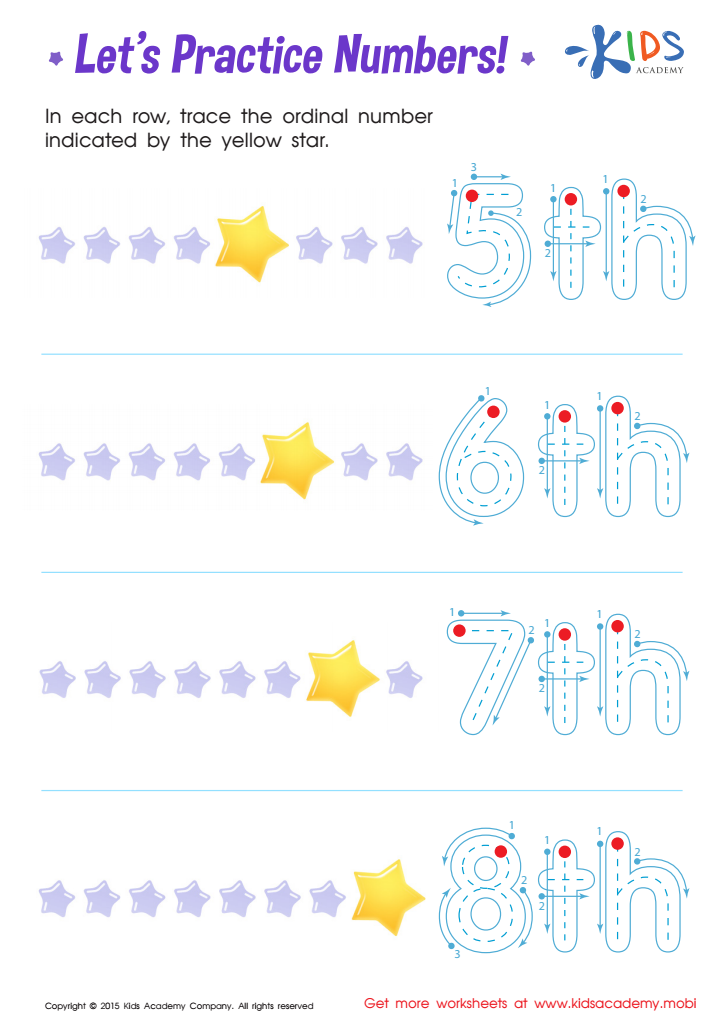Tracing Numbers Worksheets Activities With Answers for Ages 3-8
32 filtered results
-
From - To
Enhance your child's number writing skills with our engaging Tracing Numbers Worksheets! Designed for ages 3-8, these fun activities build foundational math skills while encouraging proper handwriting techniques. Our worksheets offer a mix of tracing exercises that are perfect for preschoolers and early learners. Each sheet includes clear answer keys to help guide understanding and track progress. Kids will enjoy practicing their number formations with colorful designs, improving both dexterity and confidence. Whether used at home or in the classroom, these worksheets make learning numbers enjoyable and interactive. Start your child's mathematical journey today with our tracing activities!
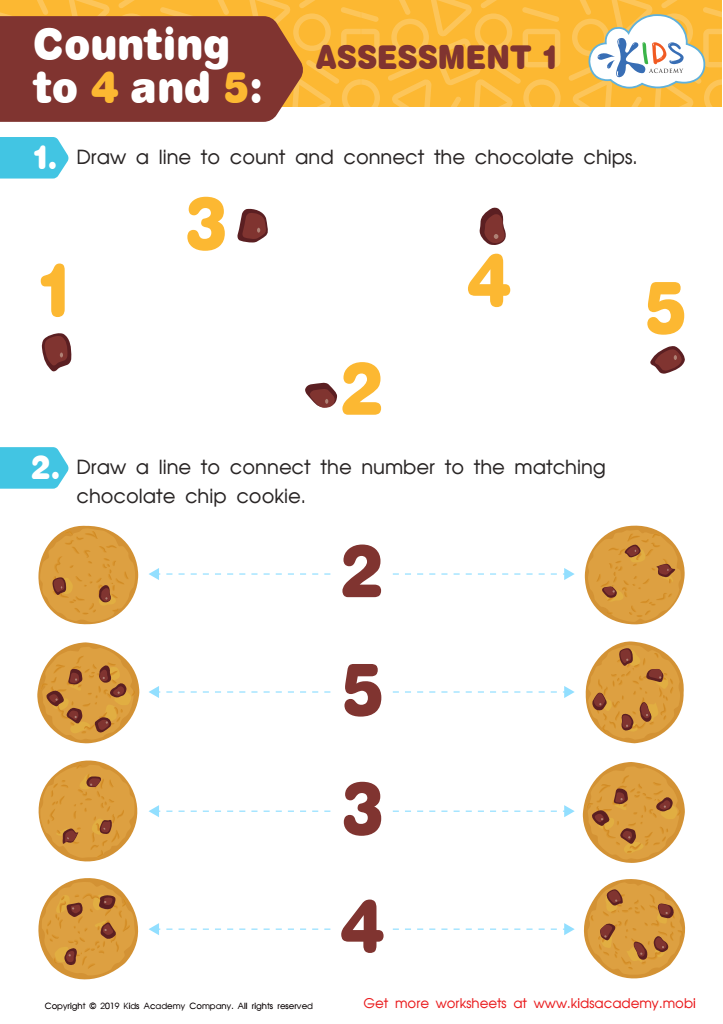

Counting to 4 and 5: Assessment 1 Worksheet
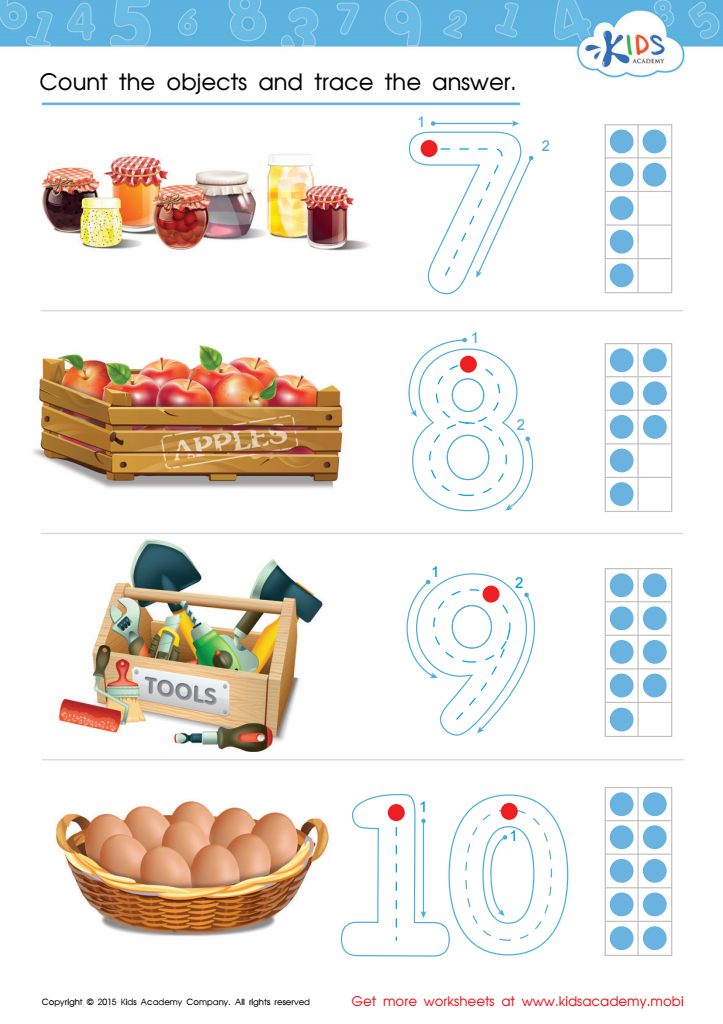

Count and Trace 7 – 10 Worksheet
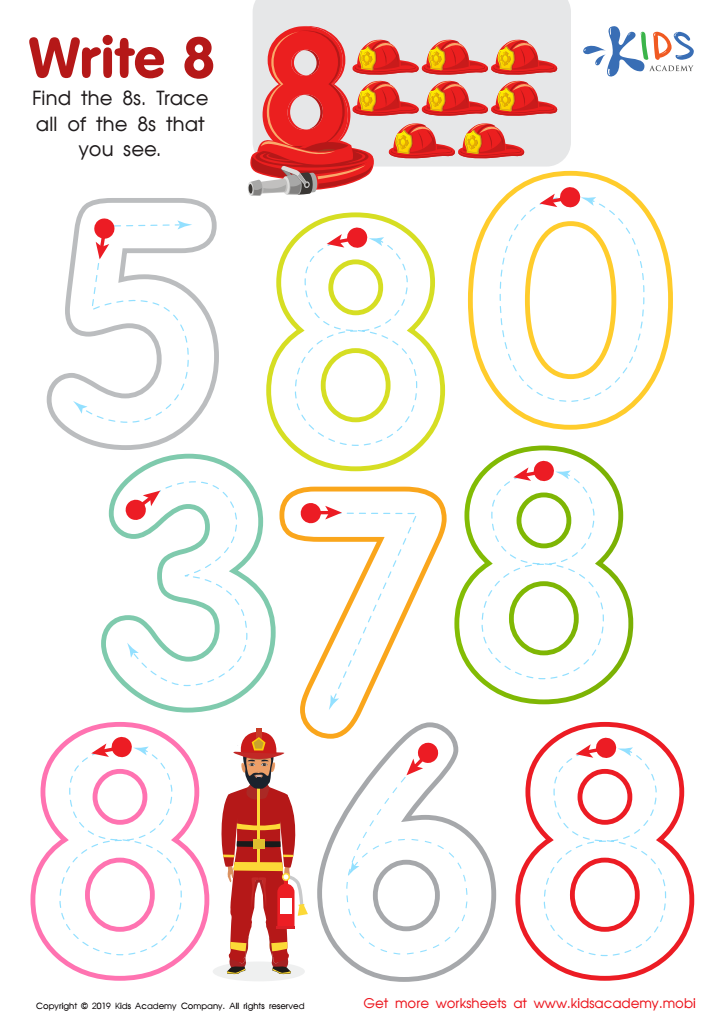

Write 8 Worksheet
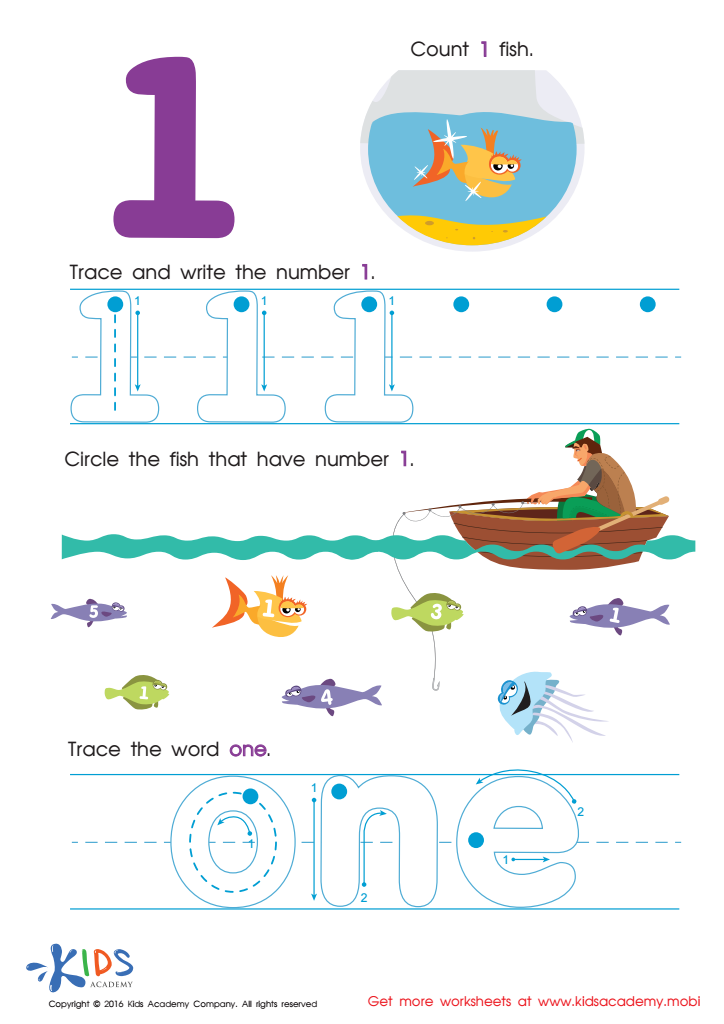

Learning to Write 1 Worksheet
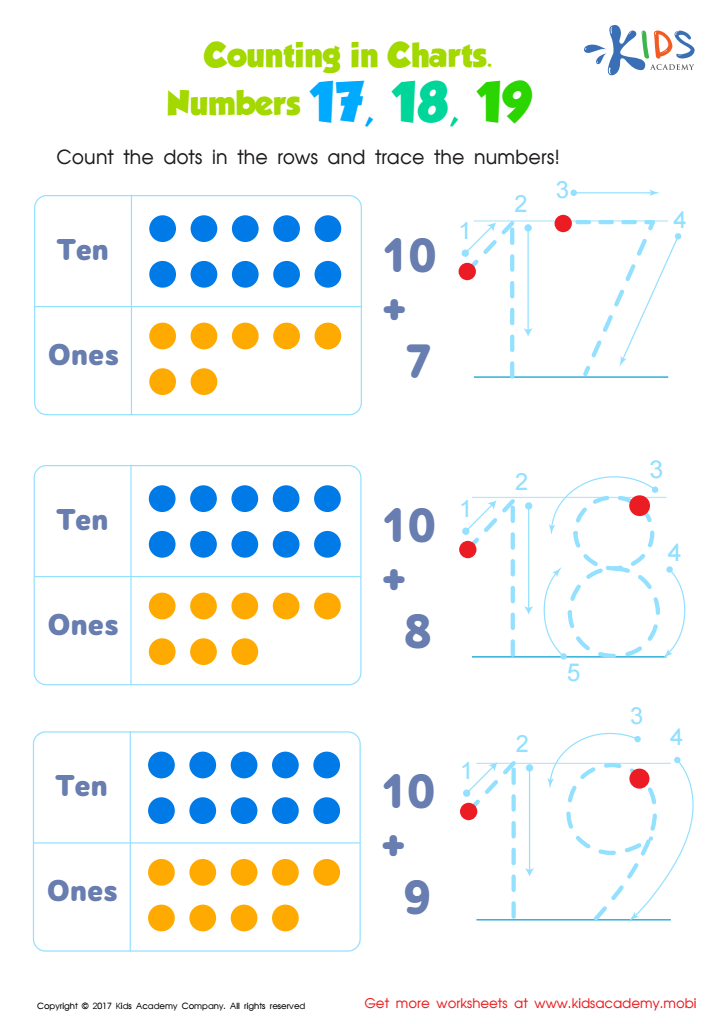

Kindergarten Number Tracing: Counting in Charts Worksheet
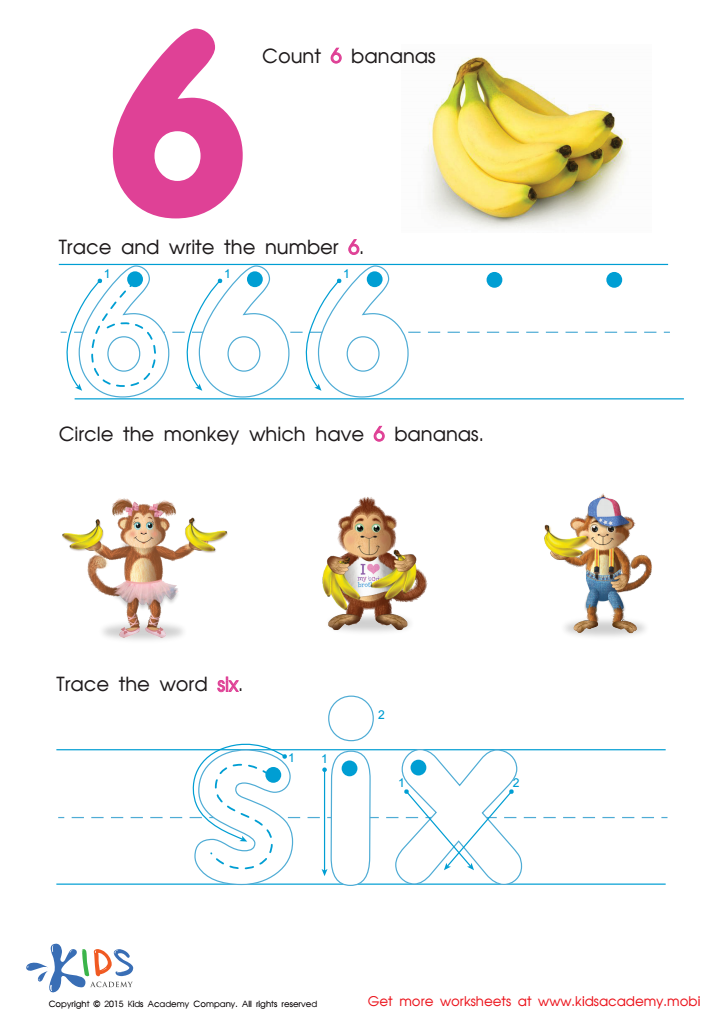

Tracing And Writing Number 6 Worksheet
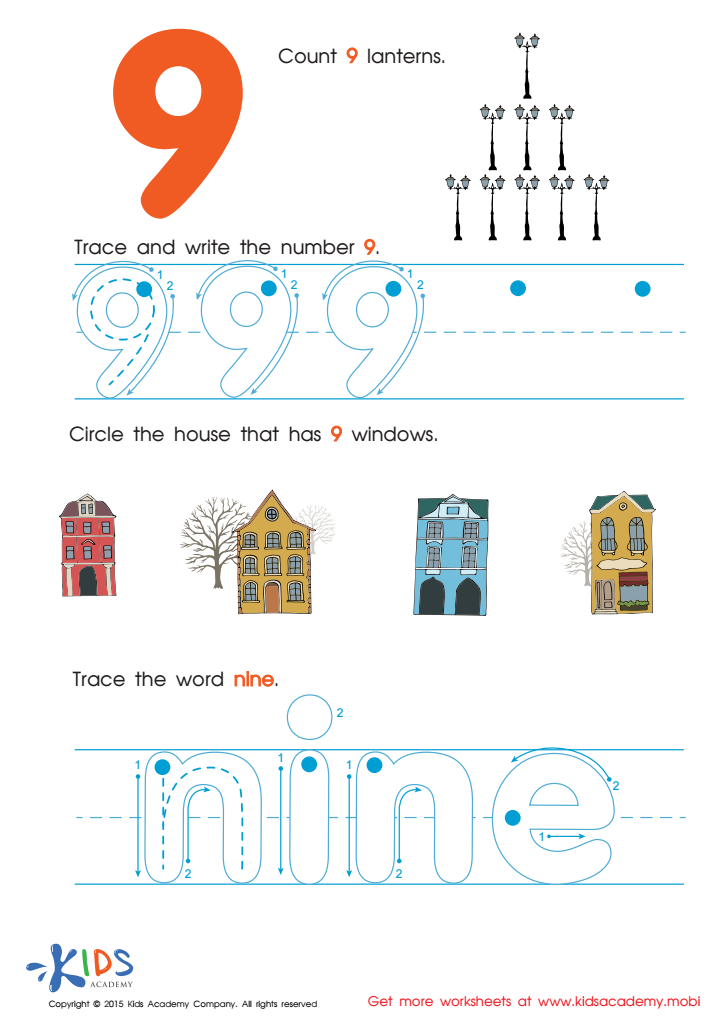

Tracing And Learning to Write Number 9 Worksheet
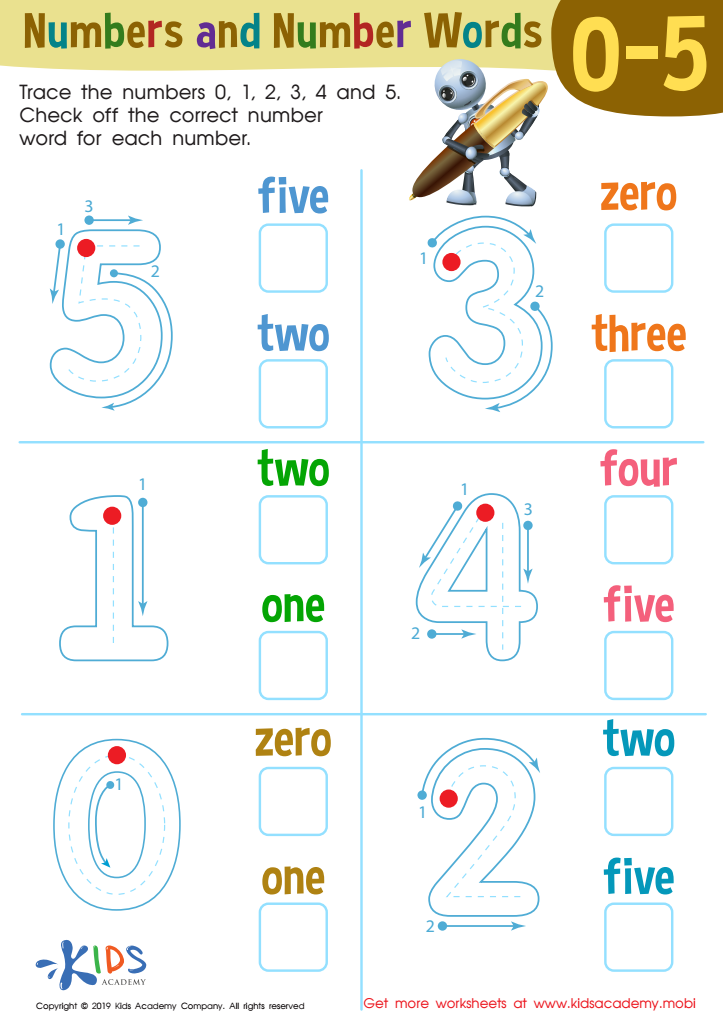

Numbers and Number Words Worksheet
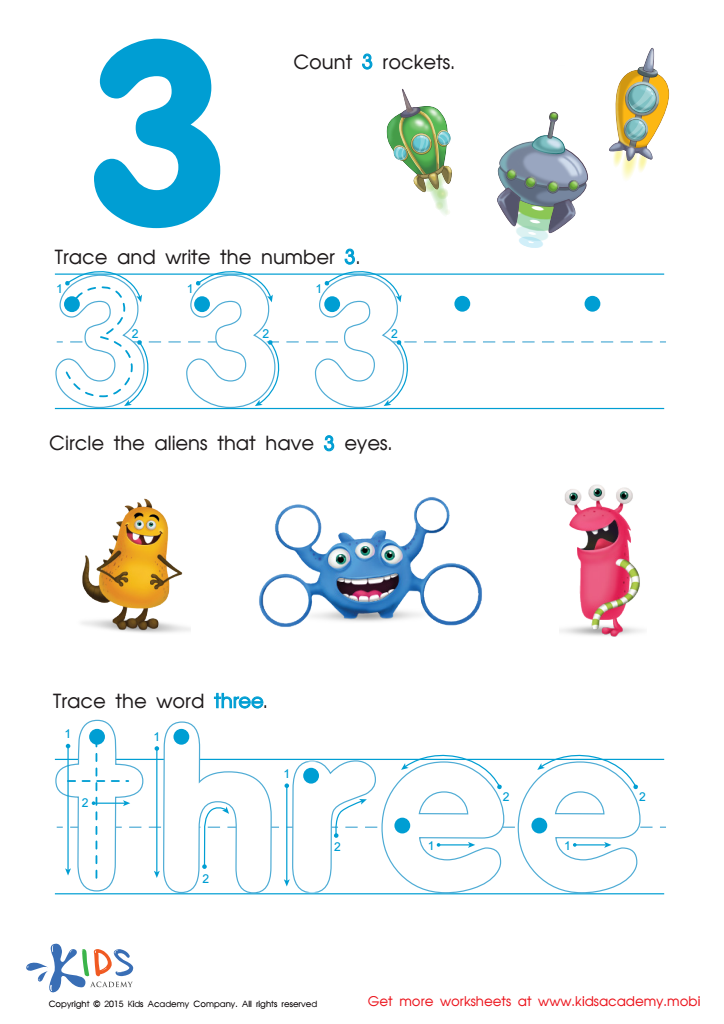

Learning Number Three Worksheet
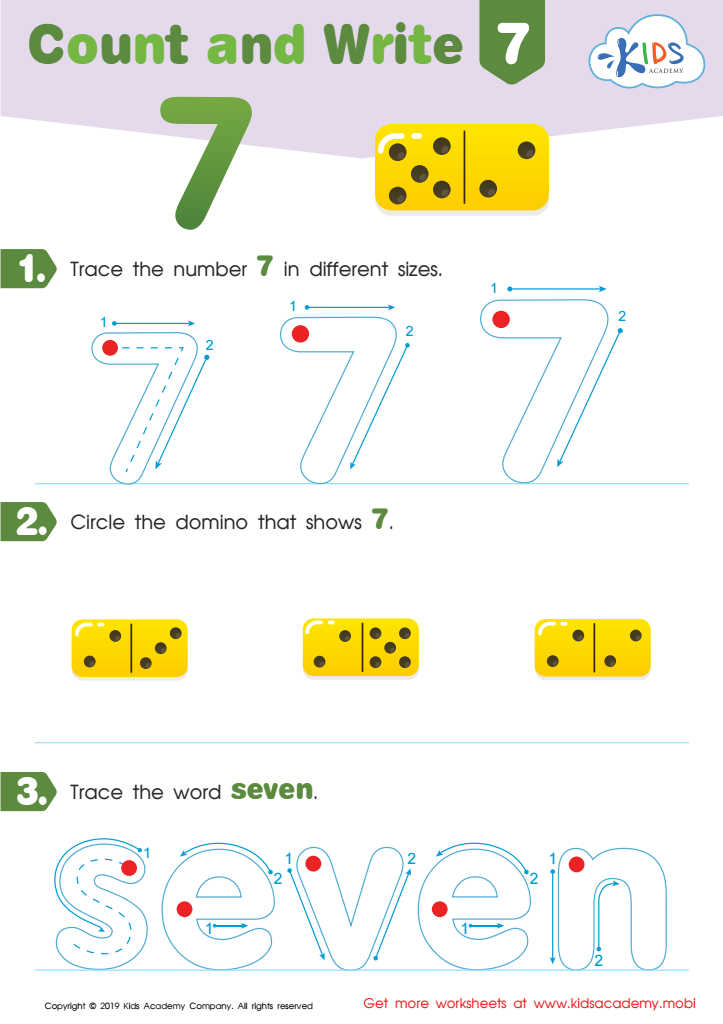

Count and Write 7 Worksheet
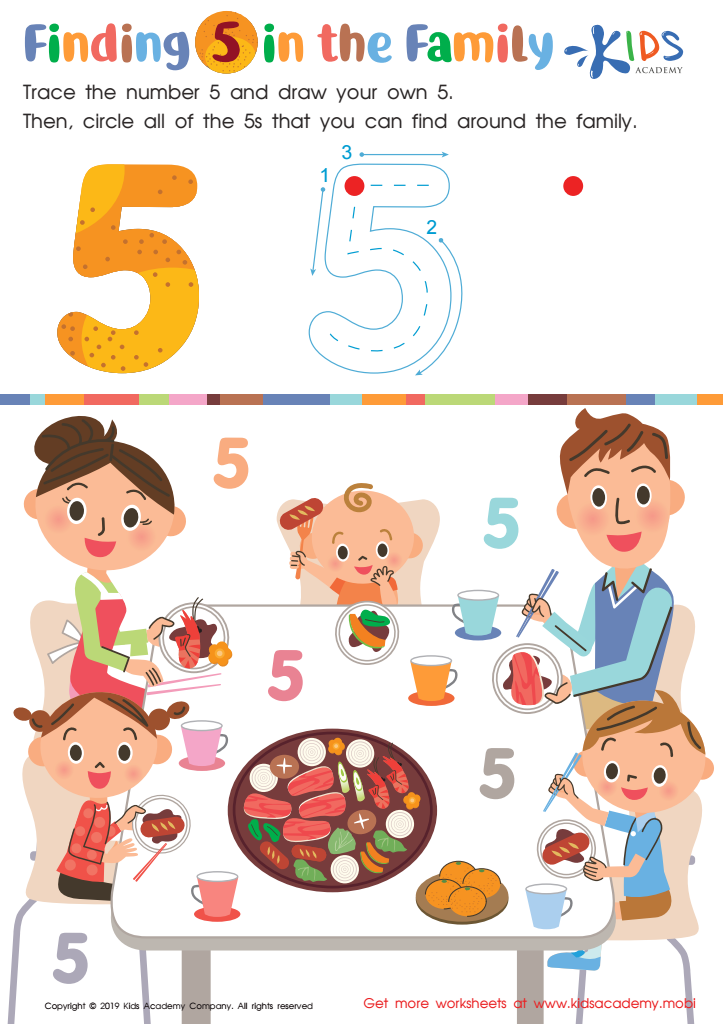

Finding 5 in the Family Worksheet
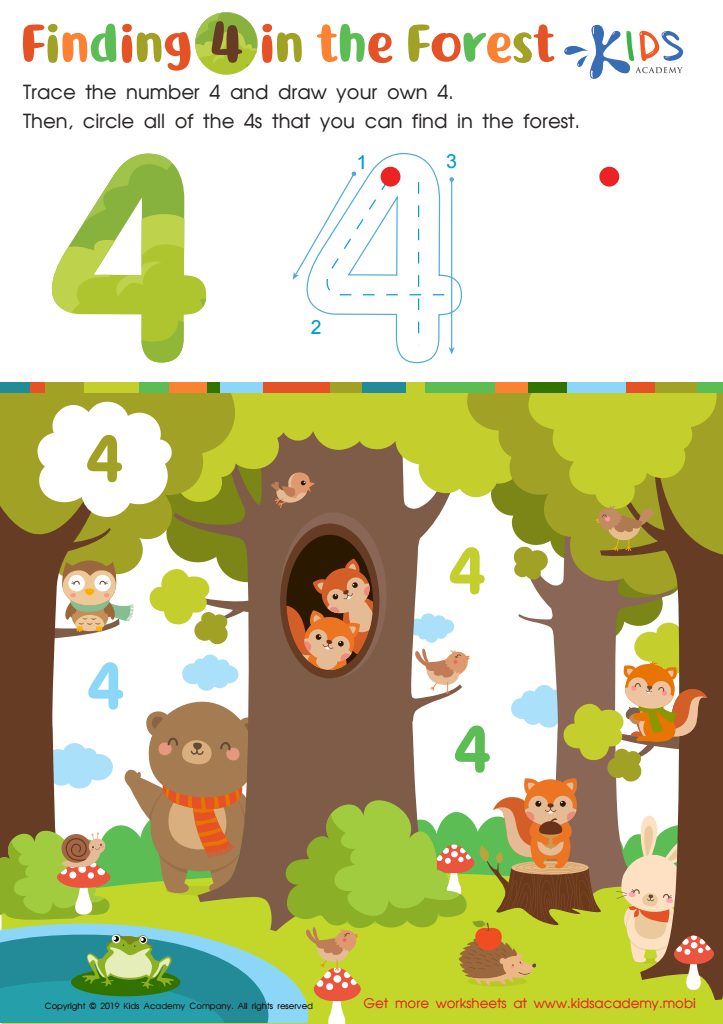

Finding 4 in the Forest Worksheet
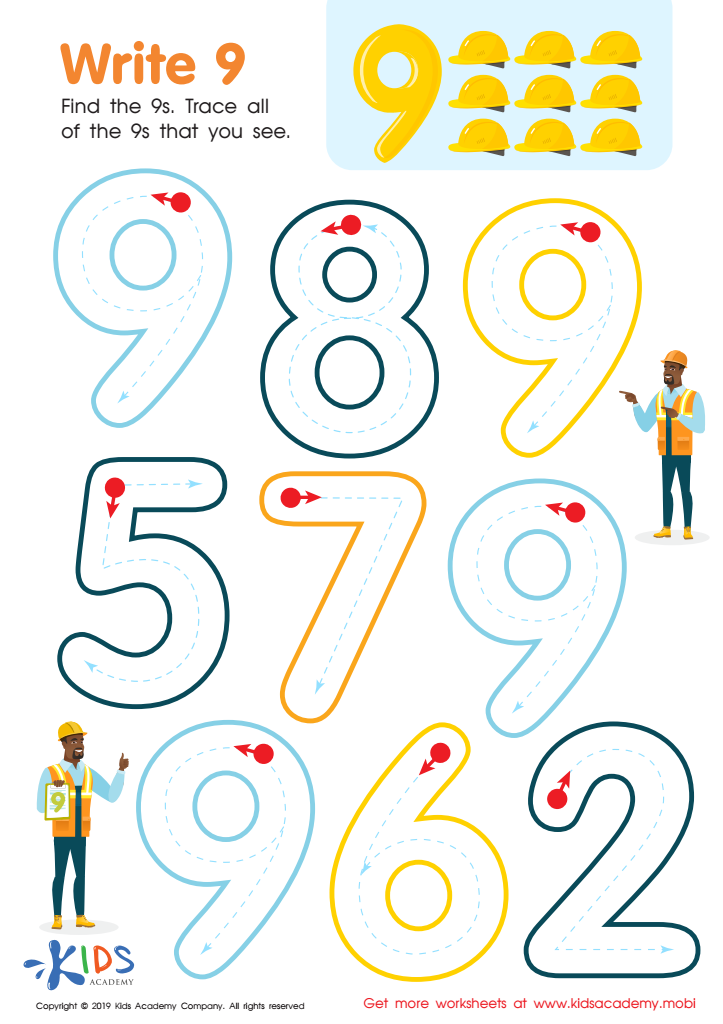

Write 9 Worksheet
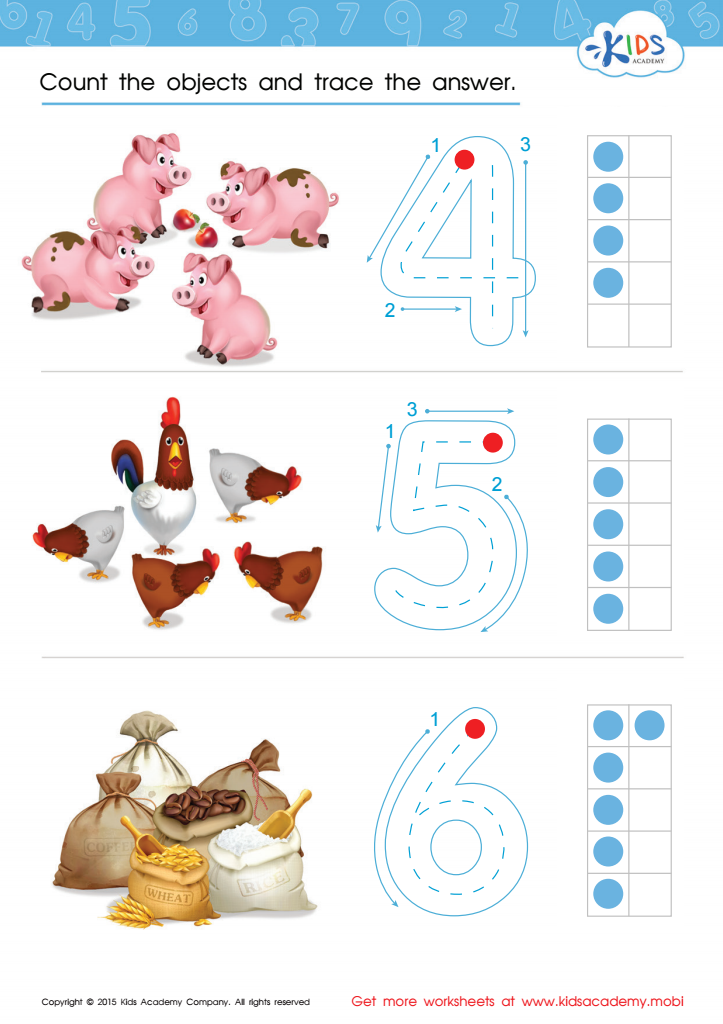

Count and Trace 4 – 6 Worksheet
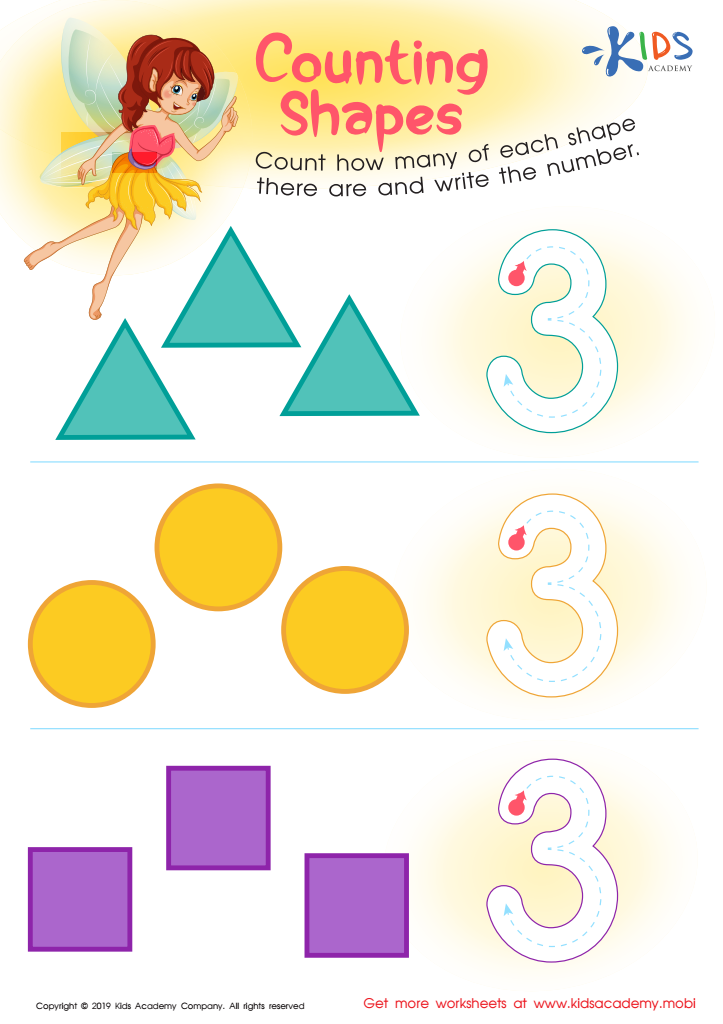

Counting Shapes Worksheet
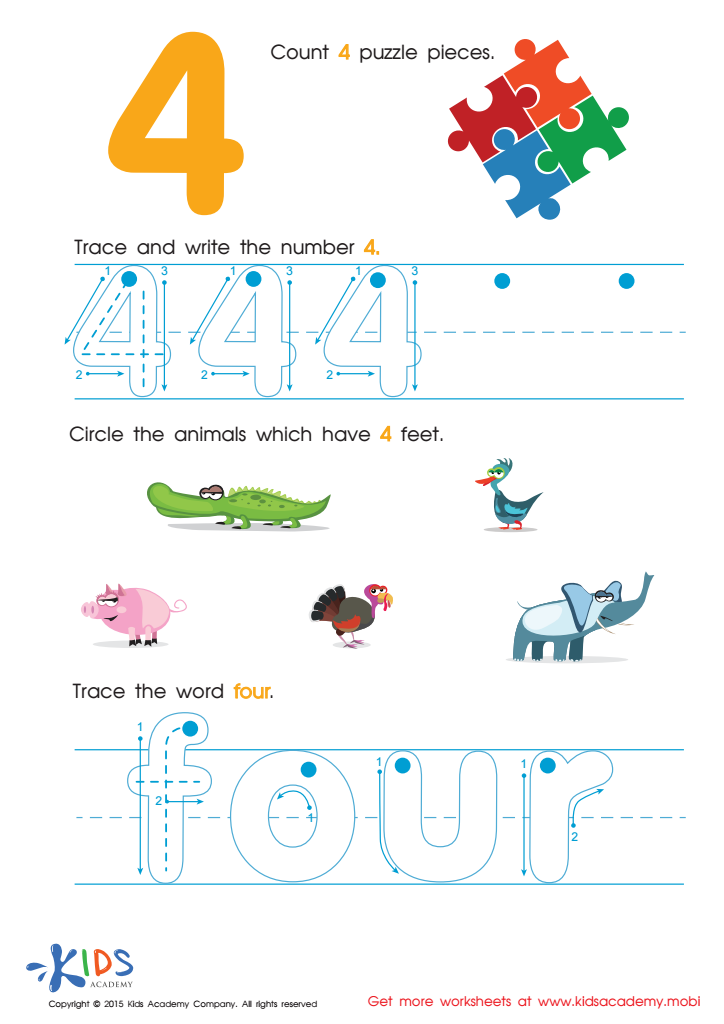

Teaching Children to Write Number 4 Worksheet
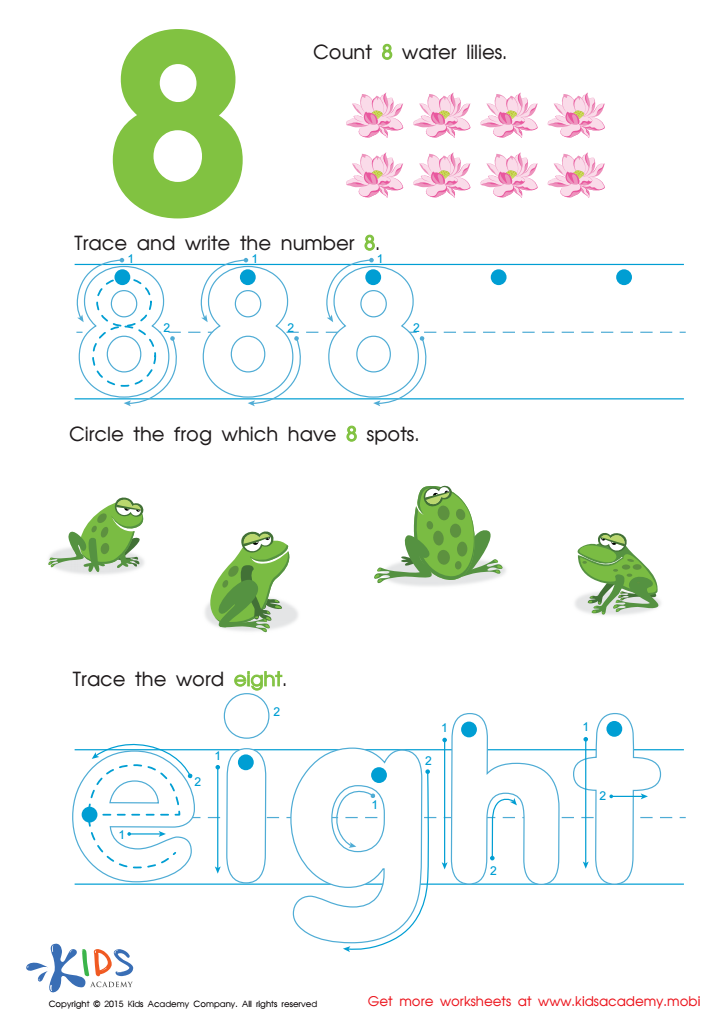

Learn Number 8 Easily Worksheet
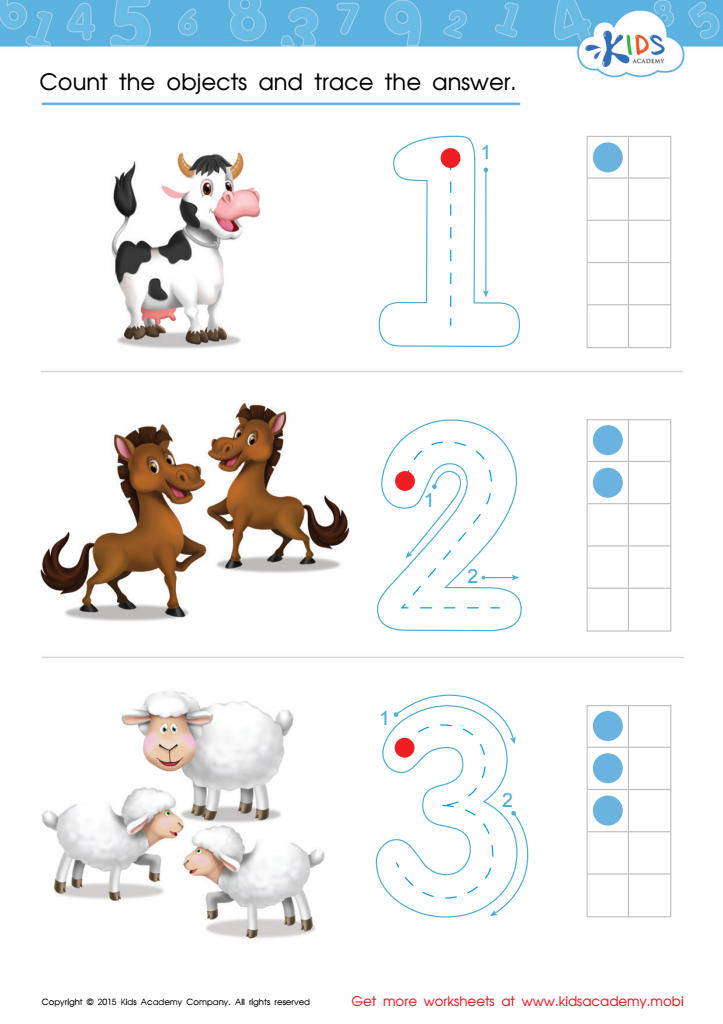

Count and Trace 1 – 3 Worksheet
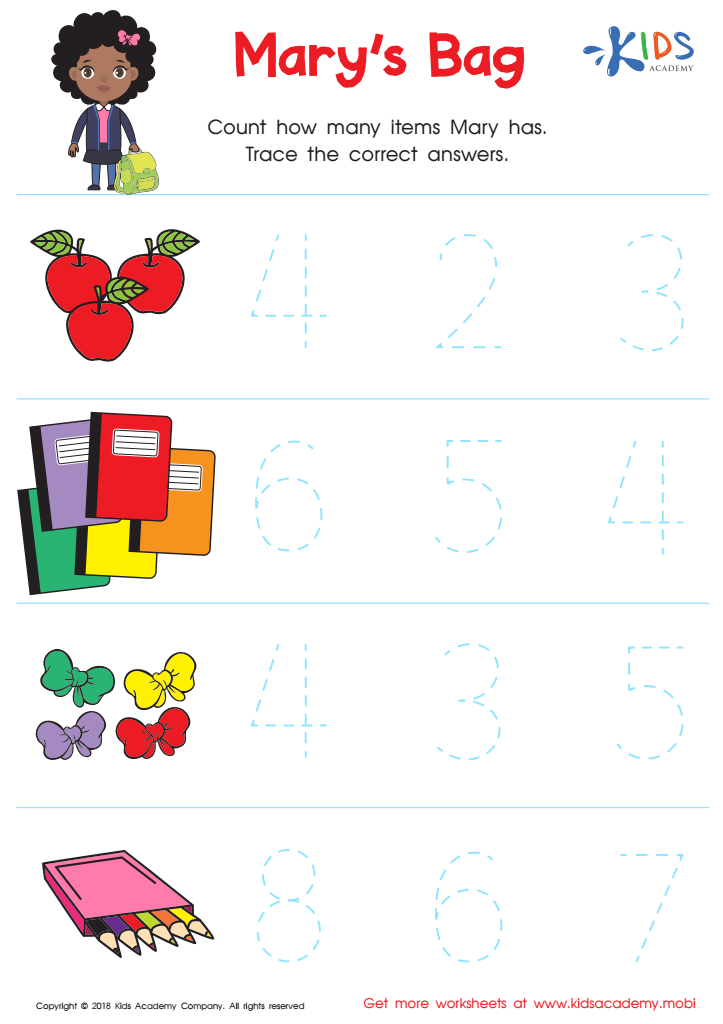

Kindergarten Number Tracing: Mary's Bag Worksheet
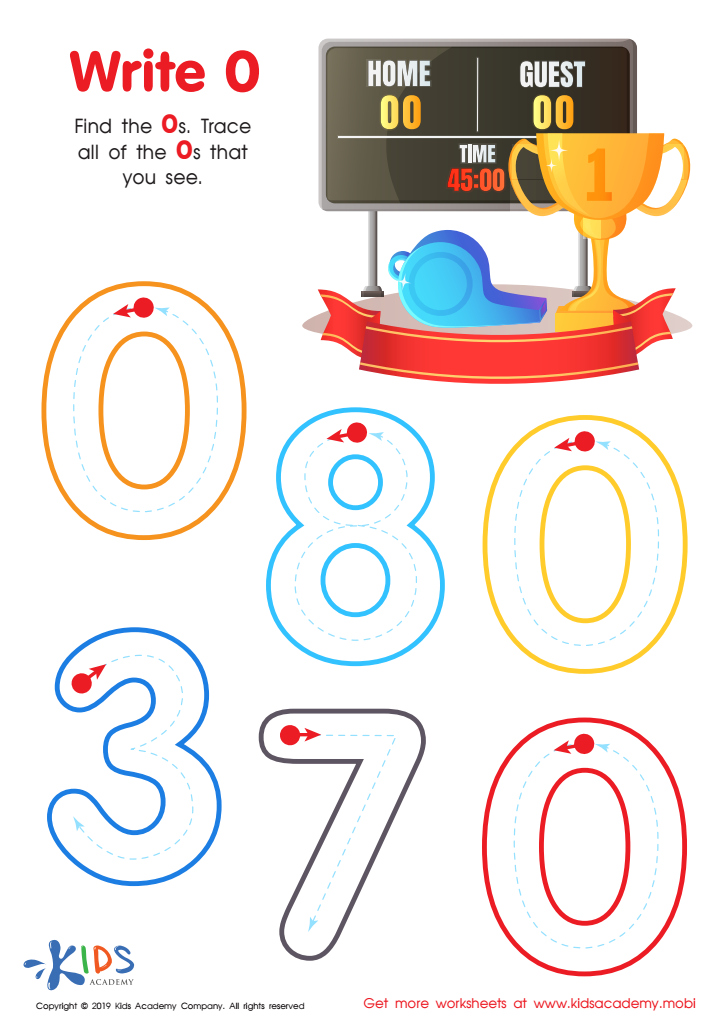

Write 0 Worksheet
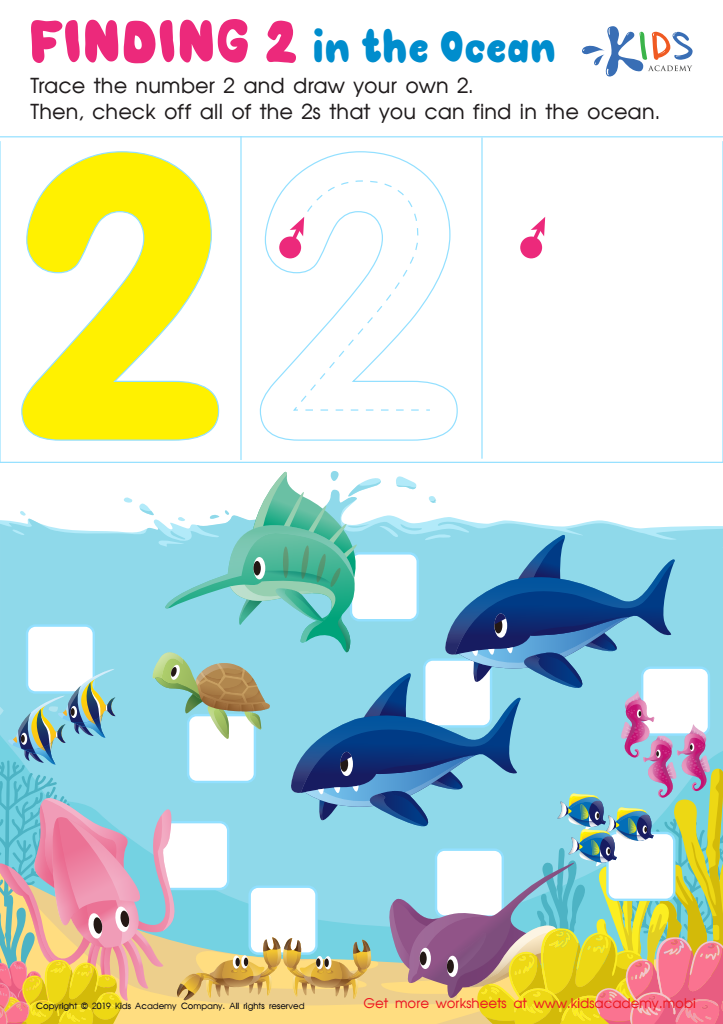

Finding 2: In the Ocean Worksheet
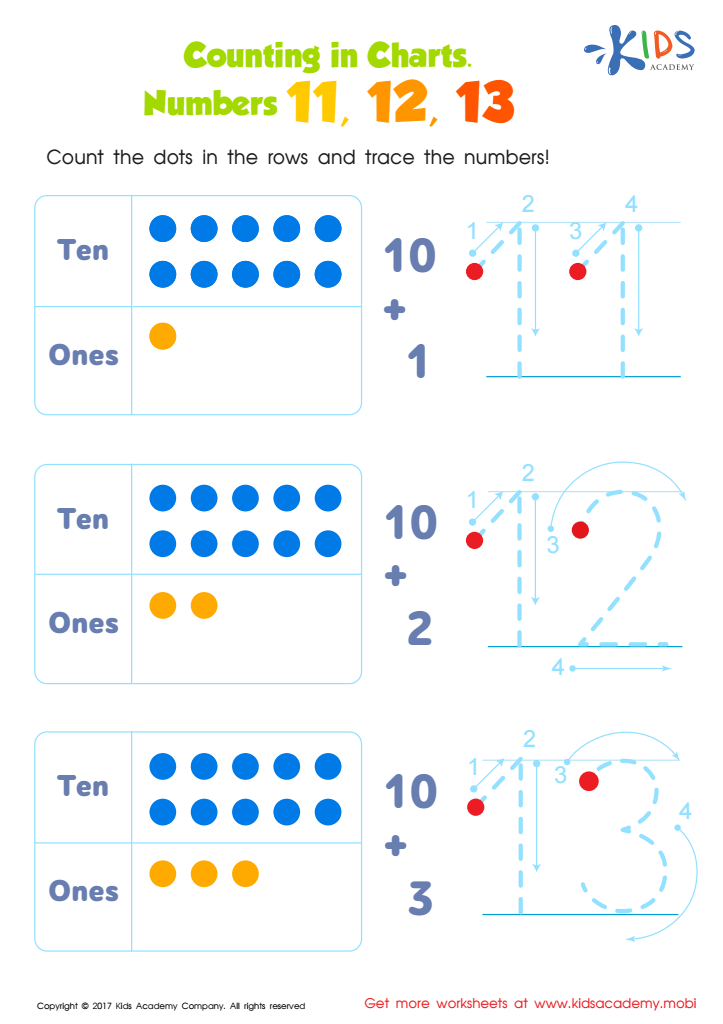

Number Tracing Worksheet For Kindergarten
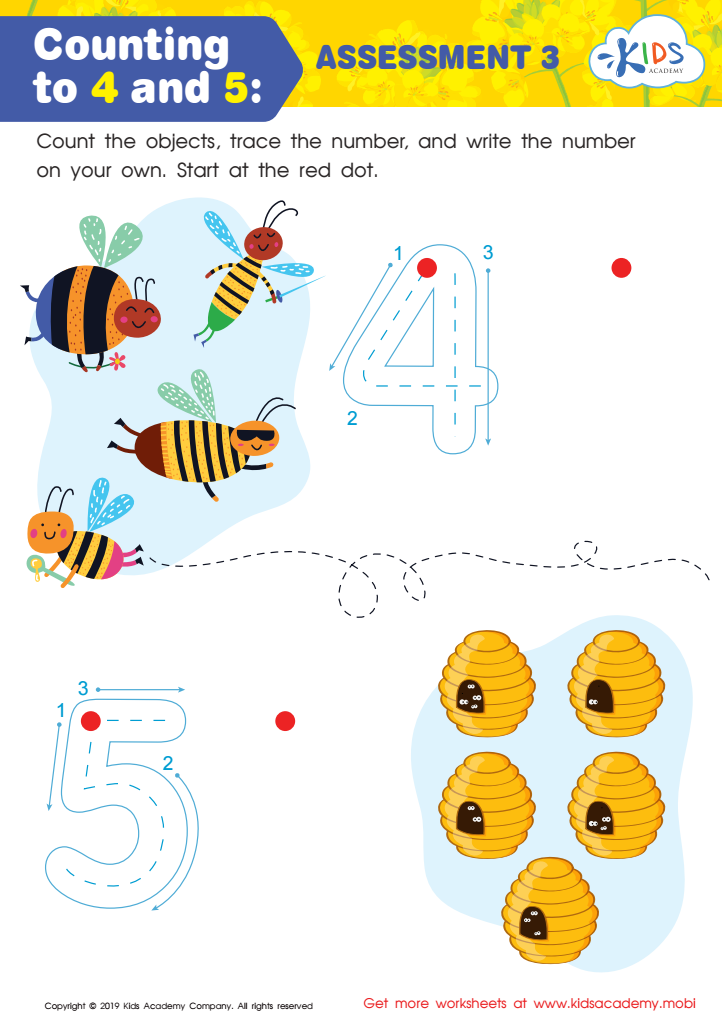

Counting to 4 and 5: Assessment 3 Worksheet
Tracing number activities are vital for children aged 3-8 as they serve as a foundational building block for early numeracy skills. These activities not only engage young minds in the world of mathematics but also promote fine motor skills, hand-eye coordination, and concentration. By tracing numbers, children learn to recognize number shapes, which is crucial for their confidence and understanding in math.
Parents and teachers should care about these activities because they foster an environment of learning through play. When children engage in tracing, they harness their creativity and improve their cognitive skills, laying the groundwork for future mathematical concepts, such as addition and subtraction. Additionally, these activities can be easily integrated into everyday routines, making learning fun and relatable.
Another key benefit is that providing answers or solutions helps children develop problem-solving skills. When they see a correctly traced number, they can self-assess their work, understanding where they can improve. For educators and parents, tracing number activities are not just about recognizing numbers but also nurturing supportive relationships where children feel encouraged, engaged, and empowered to enhance their educational journey. Ultimately, prioritizing these activities contributes to a well-rounded development in young learners.
 Assign to My Students
Assign to My Students
